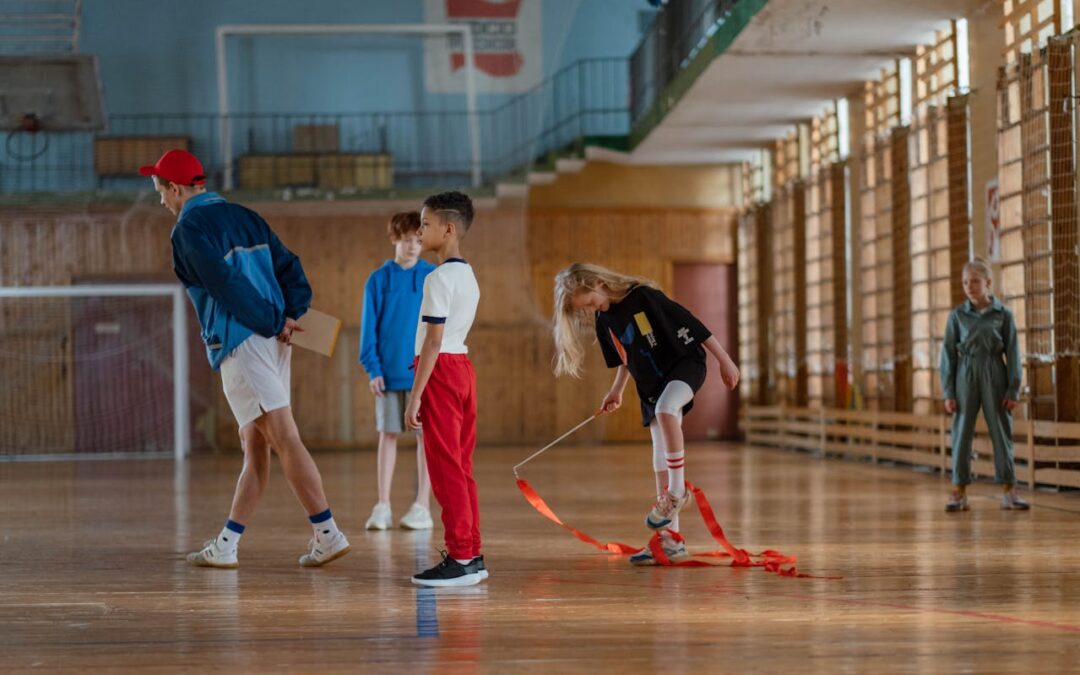Confidence and self-esteem are critical aspects of a child’s personal development, influencing their ability to engage with peers, confront challenges, take risks, and achieve success in various domains, including academics and sports. Physical education offers a unique opportunity for children to cultivate confidence and self-esteem through the accomplishment of individual and collective goals, mastery of skills, and establishment of a positive self-image.
Through engaging in physical activities, children can experience a sense of achievement and competence, reinforcing their belief in their capabilities and potential. Furthermore, sports and physical education can help develop essential skills such as teamwork, perseverance, and goal-setting, each contributing to fostering a strong sense of self-worth and a positive outlook on life.
In this article, we will explore the role of physical education in boosting children’s confidence and self-esteem, highlighting the various ways sports and activities can contribute to their personal growth. Join us as we delve into the powerful impact of physical education on children’s psychological well-being and discover how Sprint Active Education can help your child cultivate confidence and self-esteem to thrive in all aspects of their lives.
Boosting Confidence and Self-Esteem through Physical Education
The Power of Goal-Setting and Achievement in Building Confidence
Physical education offers opportunities for children to set individual and team-based goals, which can both challenge and empower them. Pursuing and attaining these goals, whether they involve increasing physical fitness, mastering a new skill, or contributing to a team victory, can instil a strong sense of achievement. This feeling of accomplishment promotes self-confidence and self-esteem, strengthening children’s belief in their abilities and potential. As a result, children who actively engage in sports are more likely to develop a positive self-image and to apply these goal-setting skills to other areas of their lives, fostering a growth mindset and resilience in the face of challenges.
Developing Physical Competence and Self-Image
Participation in sports and physical activities allows children to develop physical skills, strength, and endurance, contributing to their overall health and wellness. As children experience improvements in their physical abilities, they begin to develop a positive self-image and feel more comfortable and confident in their bodies. This healthy self-image contributes to increased self-esteem and influences various aspects of their lives, from social interactions to academic achievements.
Enhancing Social Skills and Teamwork
Physical education also promotes the development of social skills and teamwork, which are essential for building confidence and self-esteem. Engaging in sports, children learn to communicate effectively, listen and respond to others, and work cooperatively towards shared goals. These valuable social skills can boost self-confidence in social situations and strengthen their sense of belonging within a group. Additionally, forming friendships through physical activities can provide children with a supportive network, further bolstering their self-esteem.
Coping with Failure and Developing Resilience
While success can undoubtedly foster self-confidence, learning to cope with setbacks and failure is equally crucial for developing self-esteem. Physical education teaches children that setbacks are an inevitable part of personal growth and that learning from mistakes is vital for progress. By experiencing failure in a safe and supportive environment, children learn to manage disappointment, develop resilience, and become more confident in facing challenges and overcoming obstacles in various aspects of their lives.
Practical Strategies to Encourage Confidence in Physical Education
Parents, teachers, and coaches can implement several strategies to foster an environment where children can build their confidence and self-esteem through physical education:
1. Encourage Effort and Persistence: Emphasise the importance of effort and persistence over winning or losing. Praise children for their hard work, determination, and commitment to improvement, ensuring they feel valued and confident in their abilities.
2. Set Realistic Goals: Help children set achievable goals, focusing on personal milestones rather than external comparisons. Achievable goals provide children with a clear sense of direction and motivation to strive for improvement.
3. Foster a Positive Atmosphere: Create a welcoming and inclusive environment that encourages sportsmanship, mutual encouragement, and respect. A positive atmosphere will promote self-confidence and allow children to thrive in both sports and personal development.
4. Offer a Variety of Activities: Provide opportunities for children to explore different sports and activities, catering to their interests and abilities. Exposing children to a range of pursuits allows them to discover and nurture their unique strengths and passions, fostering their self-confidence and self-esteem.
5. Provide Constructive Feedback: Offer children constructive feedback, highlighting their strengths and areas for growth. Reinforce the importance of continuous learning and improvement, helping to build their confidence and resilience.
Conclusion
Physical education can offer invaluable opportunities for children to build confidence and self-esteem, which can have a profound impact on their personal and academic development. By engaging in educational sports, children can develop physical competence, social skills, resilience, and a strong sense of self-worth. With the guidance and support of Sprint Active Education, parents and teachers can empower children to harness the power of physical education, equipping them with the confidence and self-esteem to flourish in all areas of their lives.

